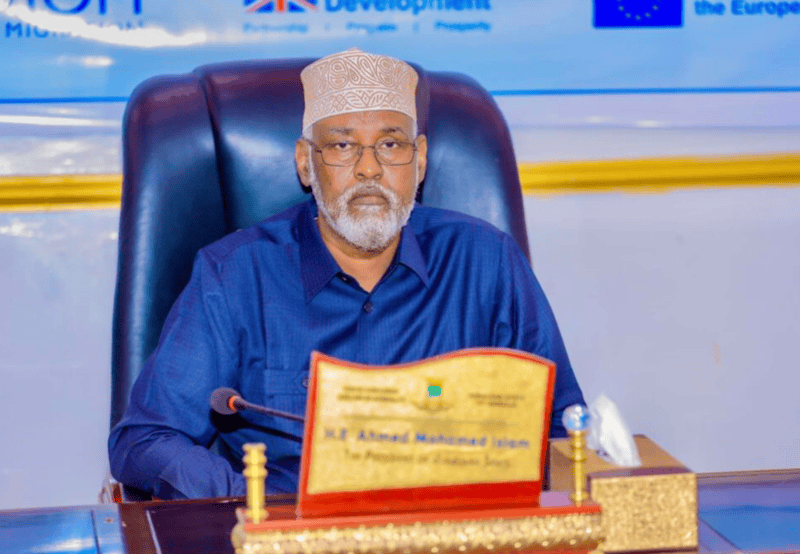Ahmed Madobe re-elected as Jubaland President for a third term

The election followed the selection of lawmakers by Jubaland elders, highlighting the contested nature of Somalia’s electoral systems.
Long-serving leader of Jubaland, Ahmed Madobe, clinched his third term on Monday, winning 55 out of 75 votes cast by regional lawmakers despite growing tensions with the Somali Federal Government. Through an indirect model, the election continued the political standoff between Mogadishu and Somalia's regional states.
Madobe's closest rival, Abubakar Omar Ali, secured 16 votes, while Faysal Muktar received just four, as announced by the regional poll agency.
More To Read
- Mogadishu’s Hamarweyne market shut for third day amid tax dispute
- How to make sweet and savoury plantains at home
- Somalia on high alert as Marburg virus outbreak hits neighbouring Ethiopia
- Mogadishu police, intelligence agents crack down on armed groups after surge in street crime
- Somalia declares drought emergency as millions face hunger after failed rains
- International Rescue Committee warns millions at risk as drought intensifies across Northern Somalia
The election followed the selection of lawmakers by Jubaland elders, highlighting the contested nature of Somalia’s electoral systems.
The Somali Federal Government has been pushing for the implementation of universal suffrage, a shift from the indirect voting model long opposed by Jubaland and Puntland.
Somali Prime Minister Hamza Abdi Barre declared Ahmed Madobe ineligible for reelection, citing a constitutional two-term limit.
Hamza also criticised the electoral process in Jubaland, labelling it illegitimate and accusing the incumbent leader of prioritising personal interests over national unity.
Ahmed Islam Madobe, shortly after being re-elected as Jubaland President on Monday, stated that he is Somali, not Kenyan. His comment came in response to allegations from the federal government accusing Kenya of meddling in Jubaland's election. pic.twitter.com/8mzgUq5vfI
— The Eastleigh Voice (@Eastleighvoice) November 25, 2024
The federal government has been advocating for a unified, universal suffrage system based on one person, one vote across Somalia. However, Jubaland and Puntland, Somalia's semi-autonomous regions, rejected this proposal due to concerns over security and logistical challenges.
Ahmed Madobe, however, dismissed the federal stance, asserting his focus remains on Jubaland's interests. “I will be President for Jubaland, not the Somali Federal Government,” he declared while campaigning.
Ahmed vowed to engage with the federal government but reiterated his resistance to the proposed reforms. “If you [MPs] elect me, I'll negotiate with FGS to work together on the people’s and nation’s interest,” he said.
The rift stems from the federal government's attempts to realign state elections with national polls and transition Somalia to a presidential system.
Ahmed argues the proposed changes could enable term extensions for federal and state leaders, a concern shared by Puntland’s leader, Said Abdullahi Deni.
Beyond politics, Madobe faces mounting security challenges, including combating Al-Shabaab militants.
With the African Union Transition Mission in Somalia (ATMIS) set to withdraw most forces by year-end, the burden of stabilising the region will shift to Somali forces under the new African Union Support and Stabilisation Mission in Somalia (AUSSOM).
Top Stories Today















































